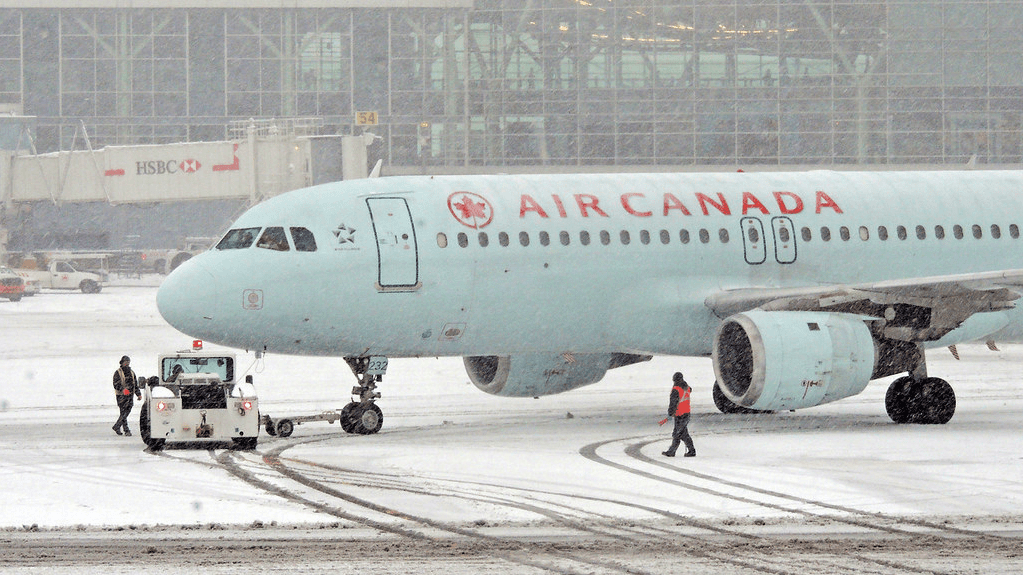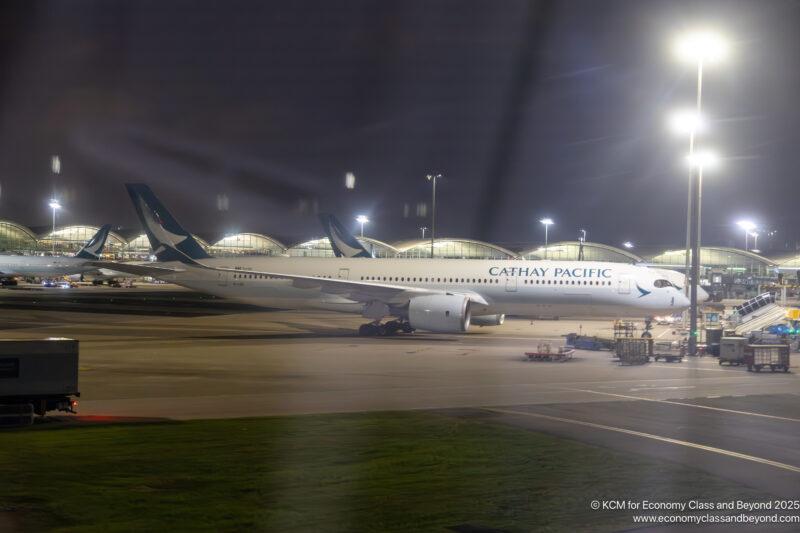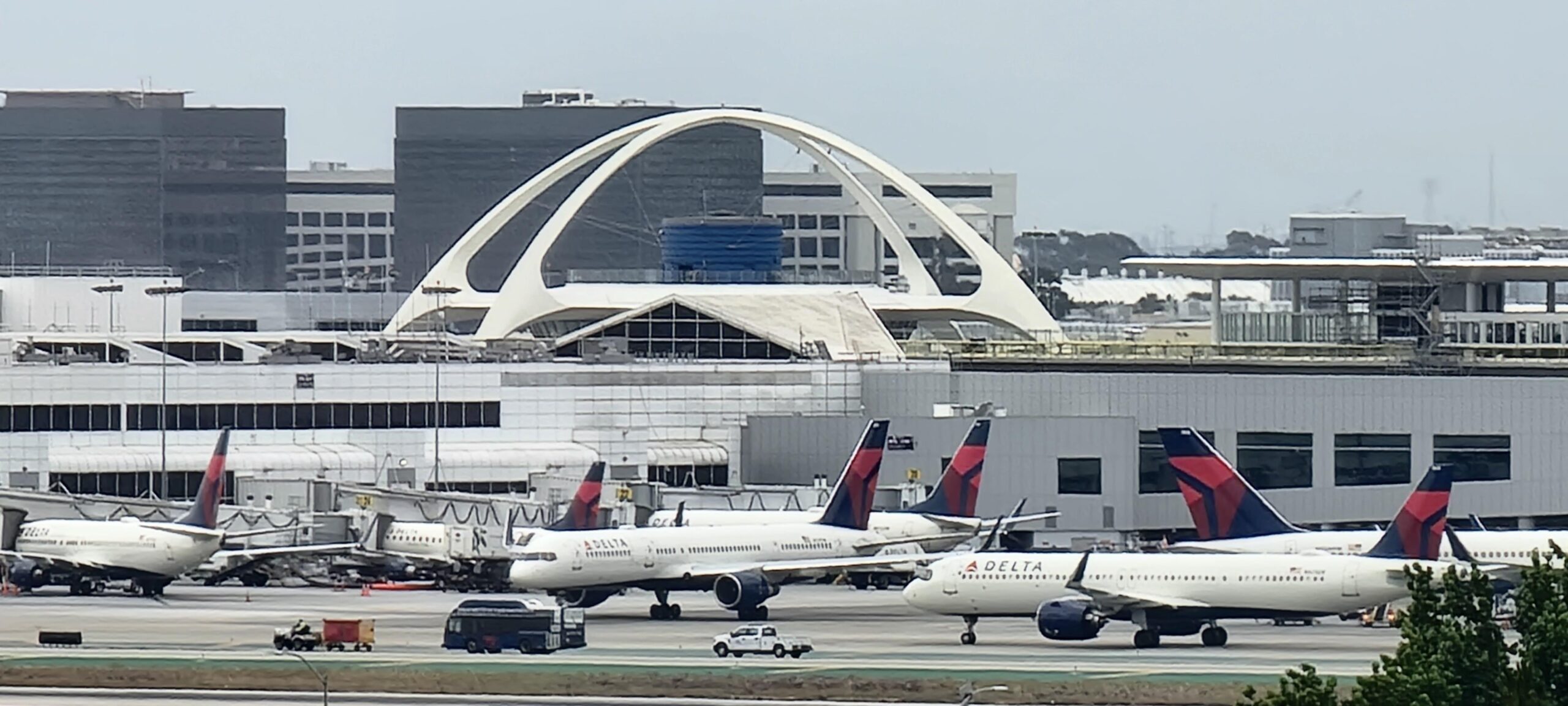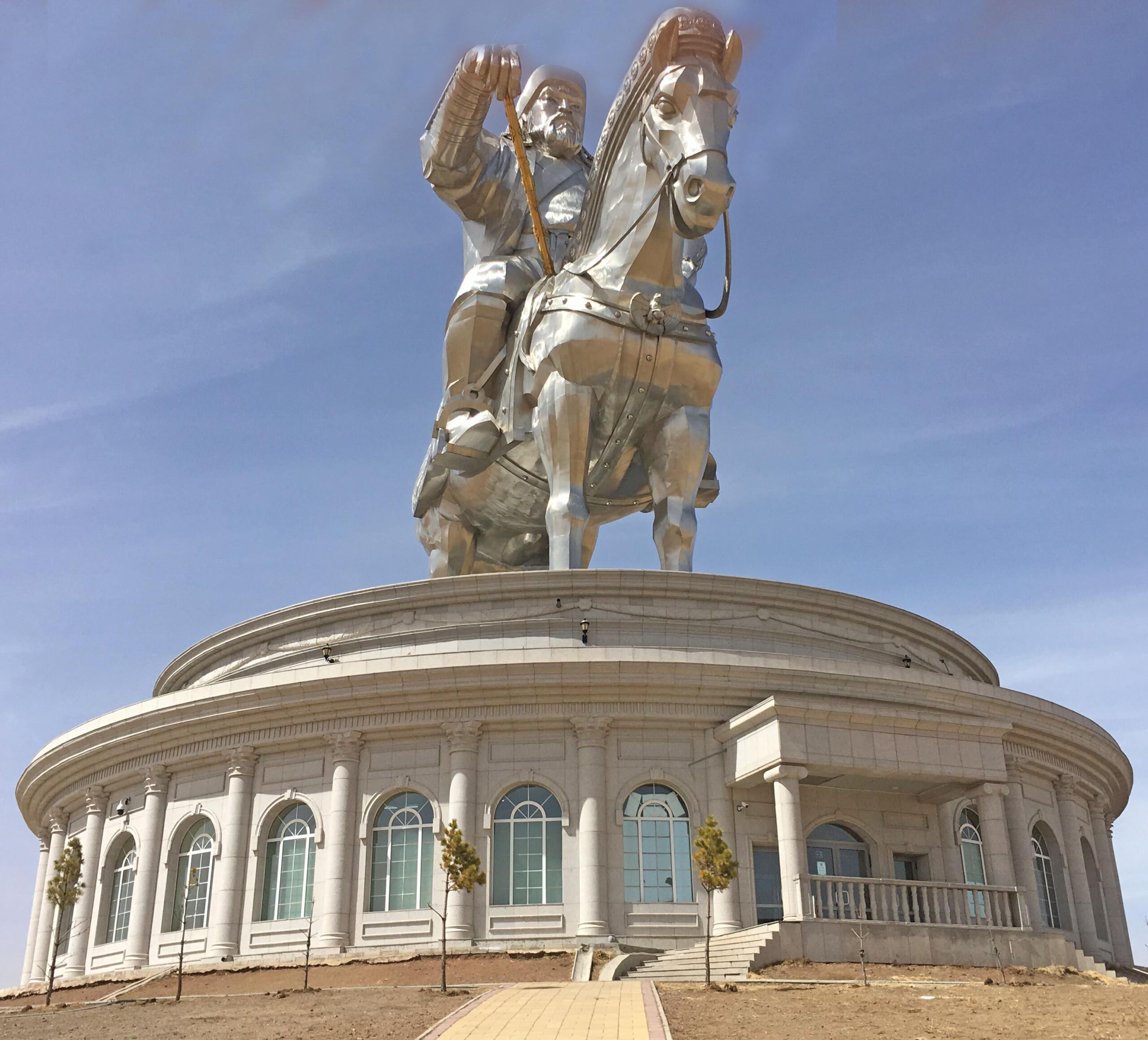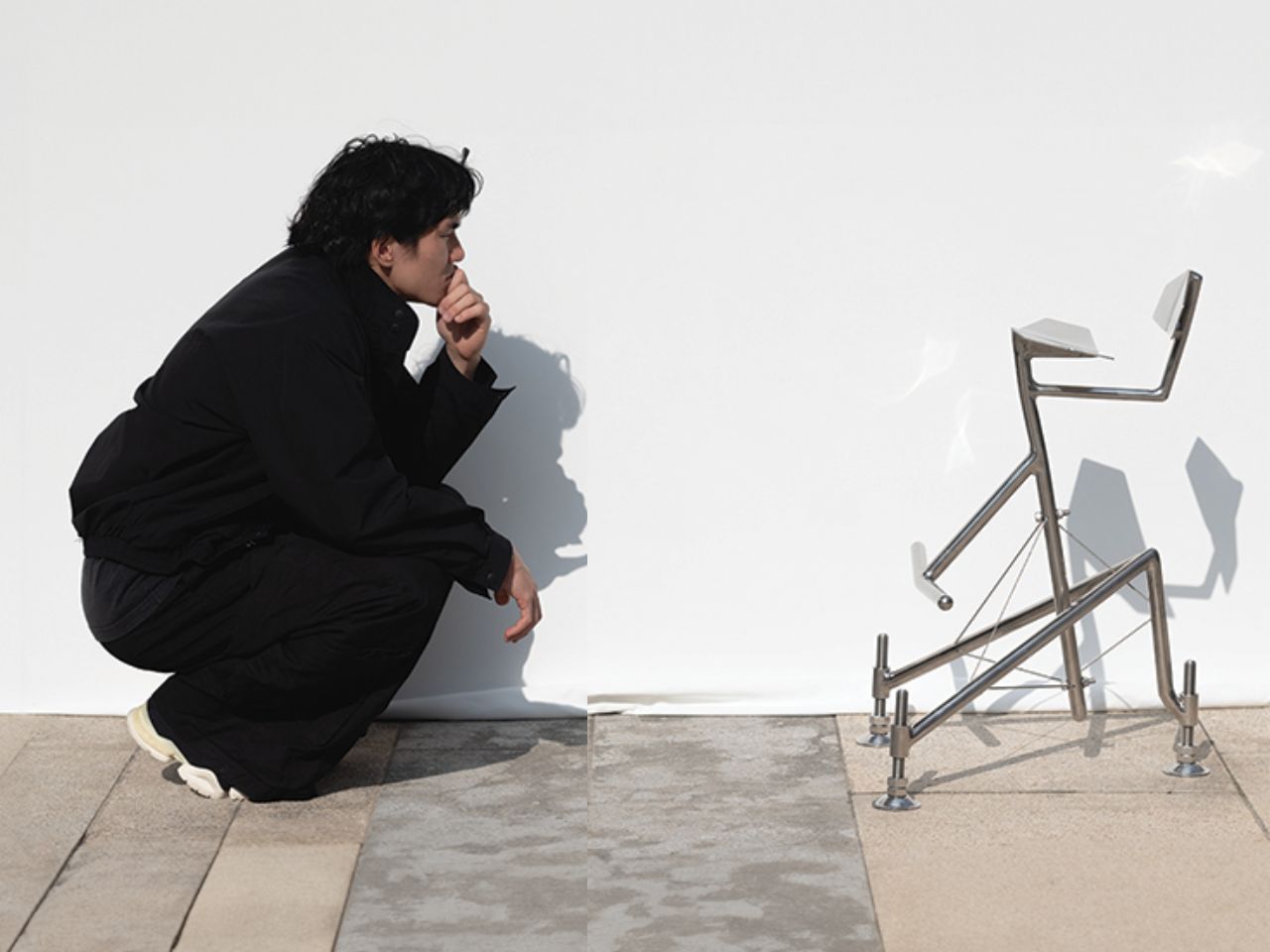Korean media leap on Moodie Davitt story about Lotte Duty Free ceasing bulk daigou business
The country’s mainstream media has been brimming with follow-up stories related to The Moodie Davitt Report’s exclusive 7 January account that Lotte Duty Free has ceased bulk sale daigou business.

SOUTH KOREA. The country’s mainstream media has been brimming with follow-up stories this week related to The Moodie Davitt Report’s exclusive 7 January account that Lotte Duty Free has ceased the bulk sale (MG) daigou business that has dominated its – and Korean travel retail’s – business over recent years.
As reported, the move – representing a huge structural change to the world’s biggest duty-free market – is part of a multi-pronged response to a profitability crisis facing Lotte Duty Free and its peers, The Shilla Duty Free, Shinsegae Duty Free and Hyundai Duty Free.
Our report noted the elimination of MG daigou trading will affect around 50% of Lotte Duty Free’s sales. Those sales, however, have involved heavy discount rates and resultant huge strains on profitability.
New Lotte Duty Free CEO Kim Dong-ha, appointed on 1 January, is charged with restoring profitability via a programme set to involve store closures or sell-offs abroad and possible contract exits.

Picking up on our report on 12 January, The Korea Herald commented: “The company now seems to prioritise profitability, even if it results in a significant decline in total revenue.
“Over the past years, daigou have received significant discounts – ranging from 40 to 50 percent off retail prices – as commission. Since 2023, duty-free shops have lowered these to around 35 percent amid growing concerns over financial losses.
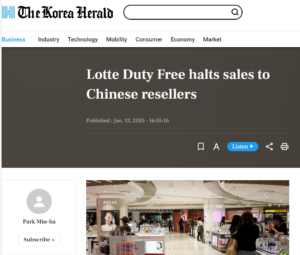
“However, as the rates still exceed the industry’s average profit margin of 20 percent, increased sales to daigou often lead to even greater losses for duty-free businesses.”
Korea JoongAng Daily wrote the same day: “Lotte Duty Free’s move appears to be aimed at improving its profitability despite possibly risking a sharp decline in sales after mounting losses in its business.
“Korean duty-free retailers, faced with a need to reduce their inventories, have often been forced to sell items to the merchants under unfavourable conditions, at one point refunding or discounting up to half of their product prices as commission fees to the Chinese resellers, leading to losses.”
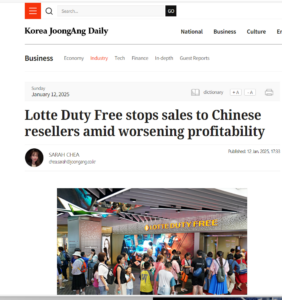
Another influential Korean business title, Chosun Biz, wrote on 12 January: “Kim Dong-ha, the newly appointed CEO of Lotte Duty Free, noted in his New Year’s address, “Now is the time to promote profitability-centred business activities.”
On 14 January Maeil Business News Korea’s Pulse online platform put a more positive spin on the story, carrying the headline ‘Lotte Duty Free ends deals with Chinese traders in bold move’.
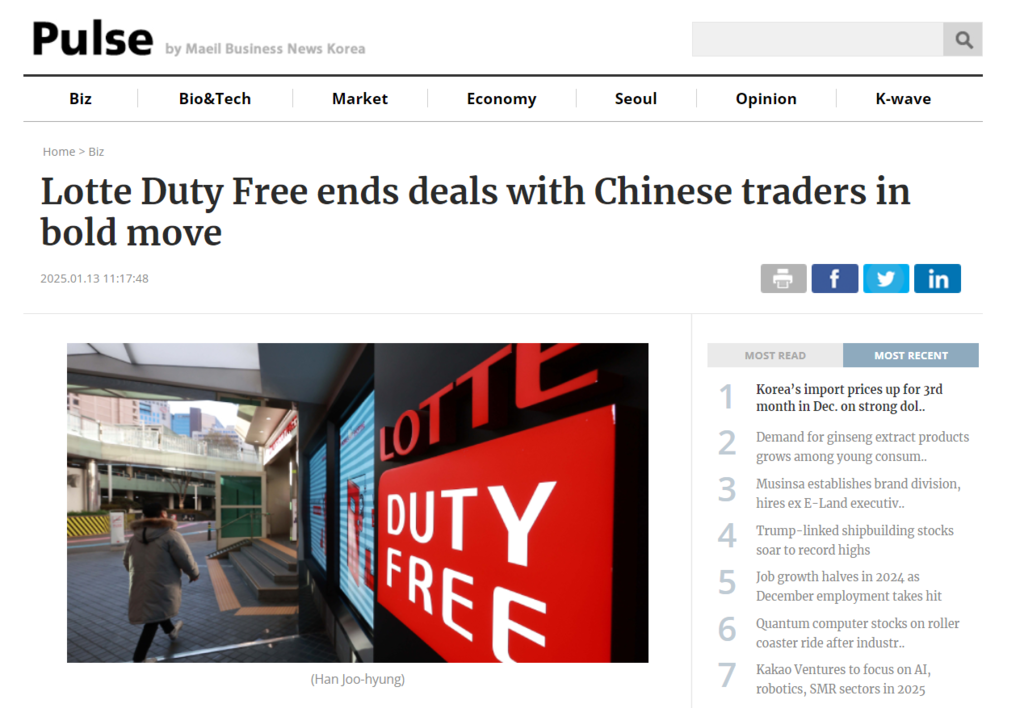
It observed: “Compounding the issue, post COVID-19 trends show a shift toward independent travellers who prefer local retailers like CJ Olive Young and Daiso over traditional duty-free stores.
“The weakening Won against the [US] Dollar has added further strain, threatening the viability of duty-free retailers. The combined operating loss of Lotte, Shilla, Shinsegae, and Hyundai’s duty-free units totalled KRW135.5 billion (US$92.18 million) in the first three quarters of 2024, with annual losses for 2024 projected to approach KRW 200 billion (US$137 million.”
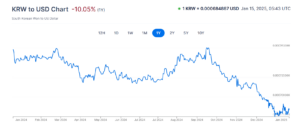
Global travel retail title Duty-Free News International eventually got in on the act in a 14 January report. It wrote: “Korean media reports announced that the retailer, which sat fourth in the global travel retailers ranking in the DFNI Database 2024/25, informed the resellers they would terminate their dealings with them late last month.” 
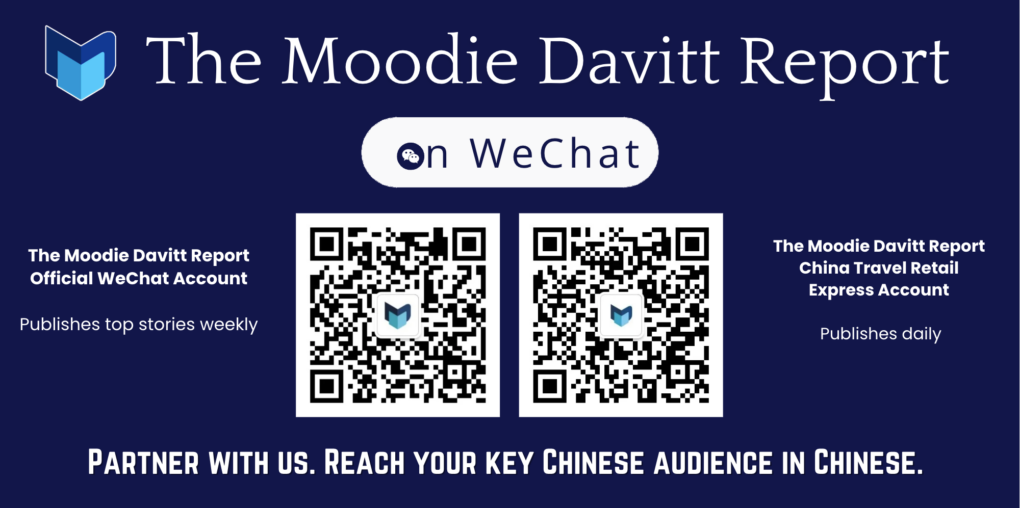
What's Your Reaction?











